The Anniversary of my Cancer Diagnosis
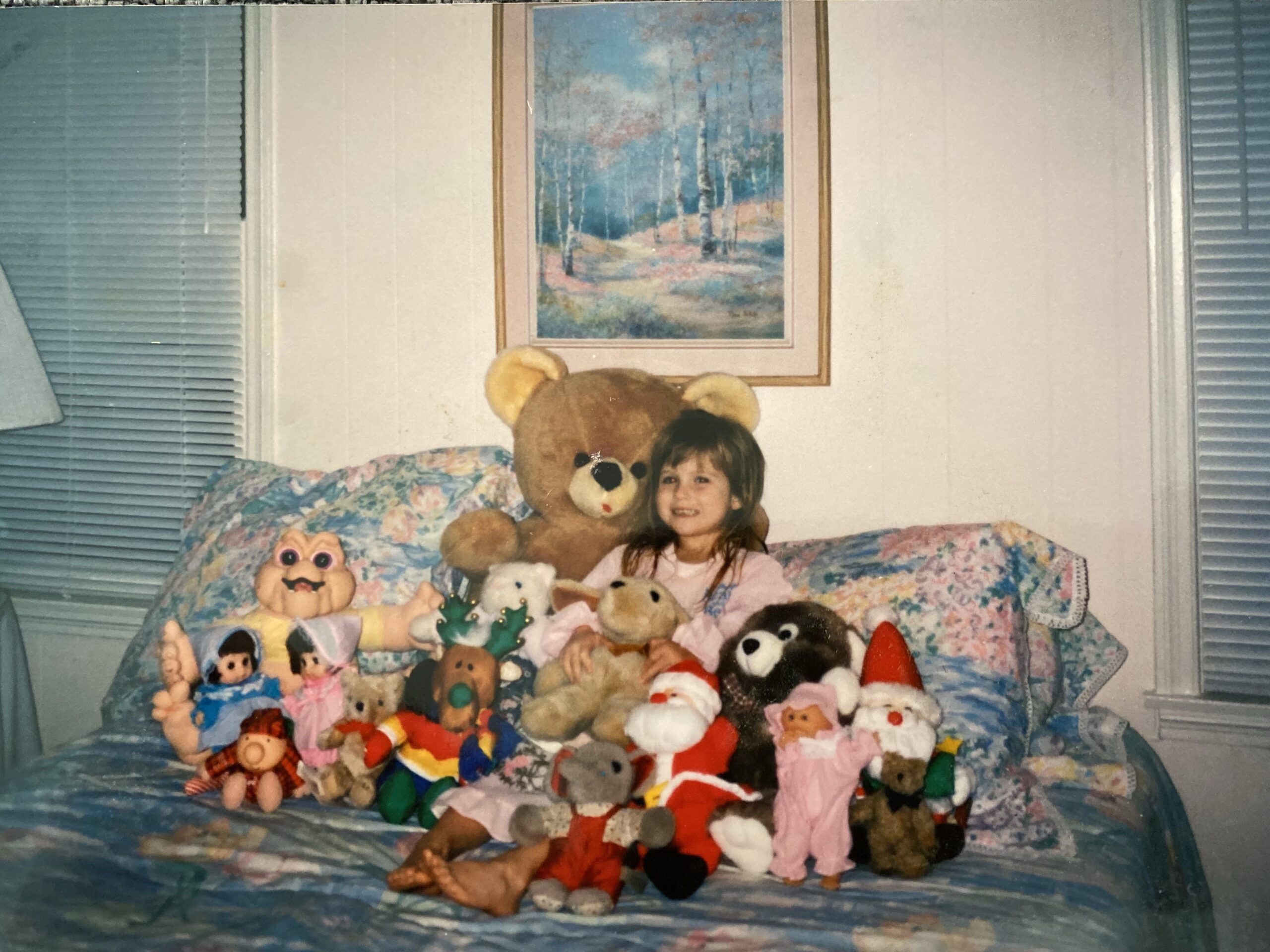
Twenty-nine years ago on this date, I was diagnosed with cancer. I was so little. There’s no way I could pronounce Acute Lymphoblastic Leukemia, nevertheless understand what was happening in my body.
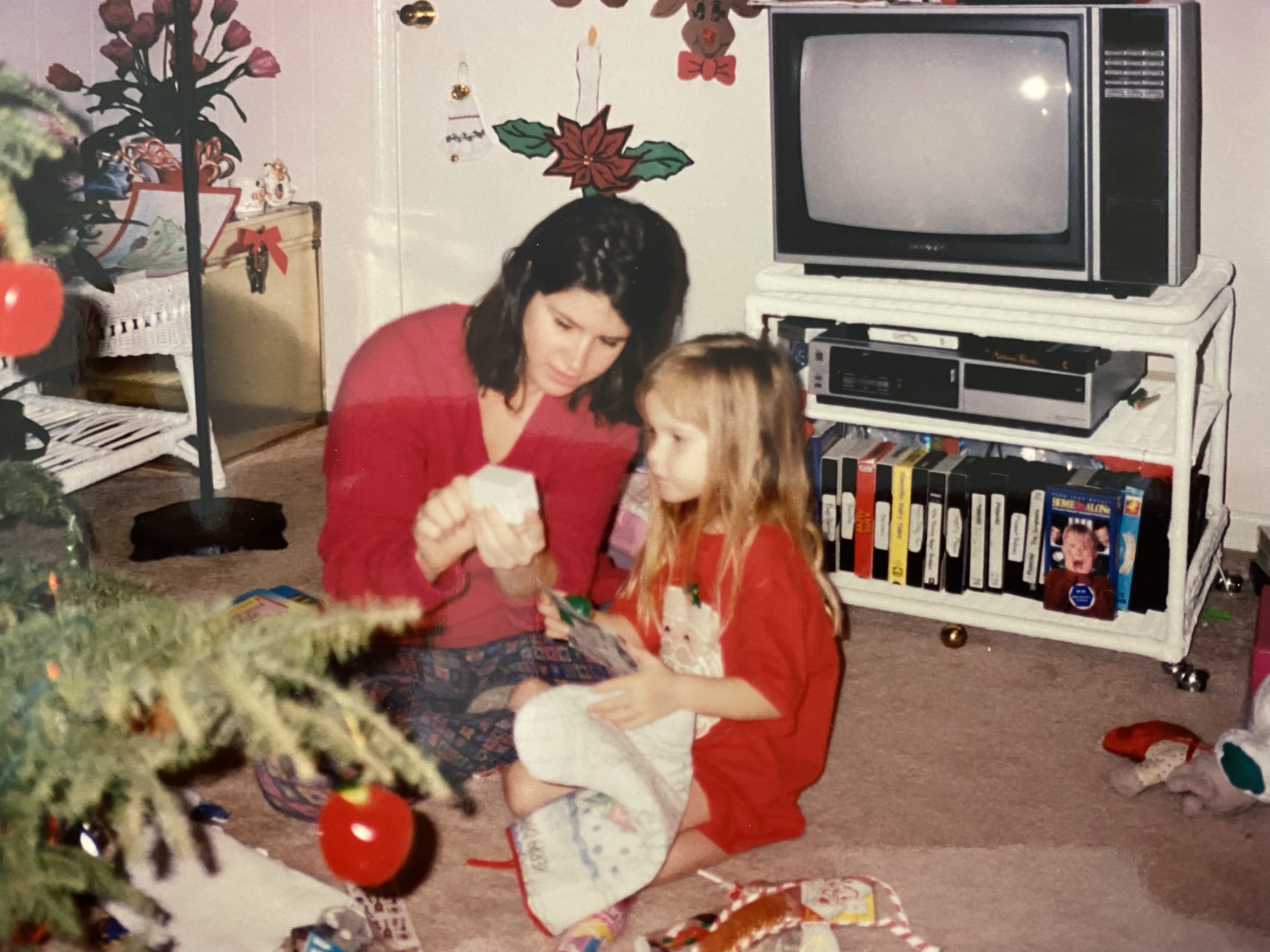
Childhood cancer is unique in that it doesn’t disrupt the patient’s life like it would an adult’s. The foundation of life isn’t yet there for disruption: a young child experiences the first hospital stay, the first round of chemo, the first spinal tap in the same way that children experience their first day of kindergarten, their first time riding a bike, and their first time tying their shoes.
I learned to tie my shoes while sitting in a hospital waiting room to receive treatment. My mom was talking to a mother she befriended whose child, diagnosed with the same disease, was back for round two after his cancer came back.
I fumbled as I showed him how I was learning to tie, and he showed me a different way, with bunny ears. I thought he had it wrong, yet I couldn’t show him the way to do it “right.”
That child died the same year. He was ten years old. I wasn’t old enough to grasp the devastation or to fear anything other than the dark. A child’s life is a series of events they can’t control, they have to get good at going through the motions. Those were the motions I went through: my mother asking if I wanted to go to this child’s funeral, then wondering that afternoon, as I played with toys under my Meemaw’s table, if I should feel bad for not going with her. The motions of refusing anesthesia as I recovered from another spinal tap, as even at four, five, and six years old, I preferred pain to uncertainty.
The motions also included being allowed to quietly play with my pre-K teacher in a dimly lit classroom while naps were strictly enforced for my classmates, some lying on their mats pretending to be asleep. It included missing much of kindergarten and the first grade to pass hours alone with my mom in a sunny hospital playroom, my left arm attached to a rolling IV stand, my right painting as I overlooked my town six flights below.
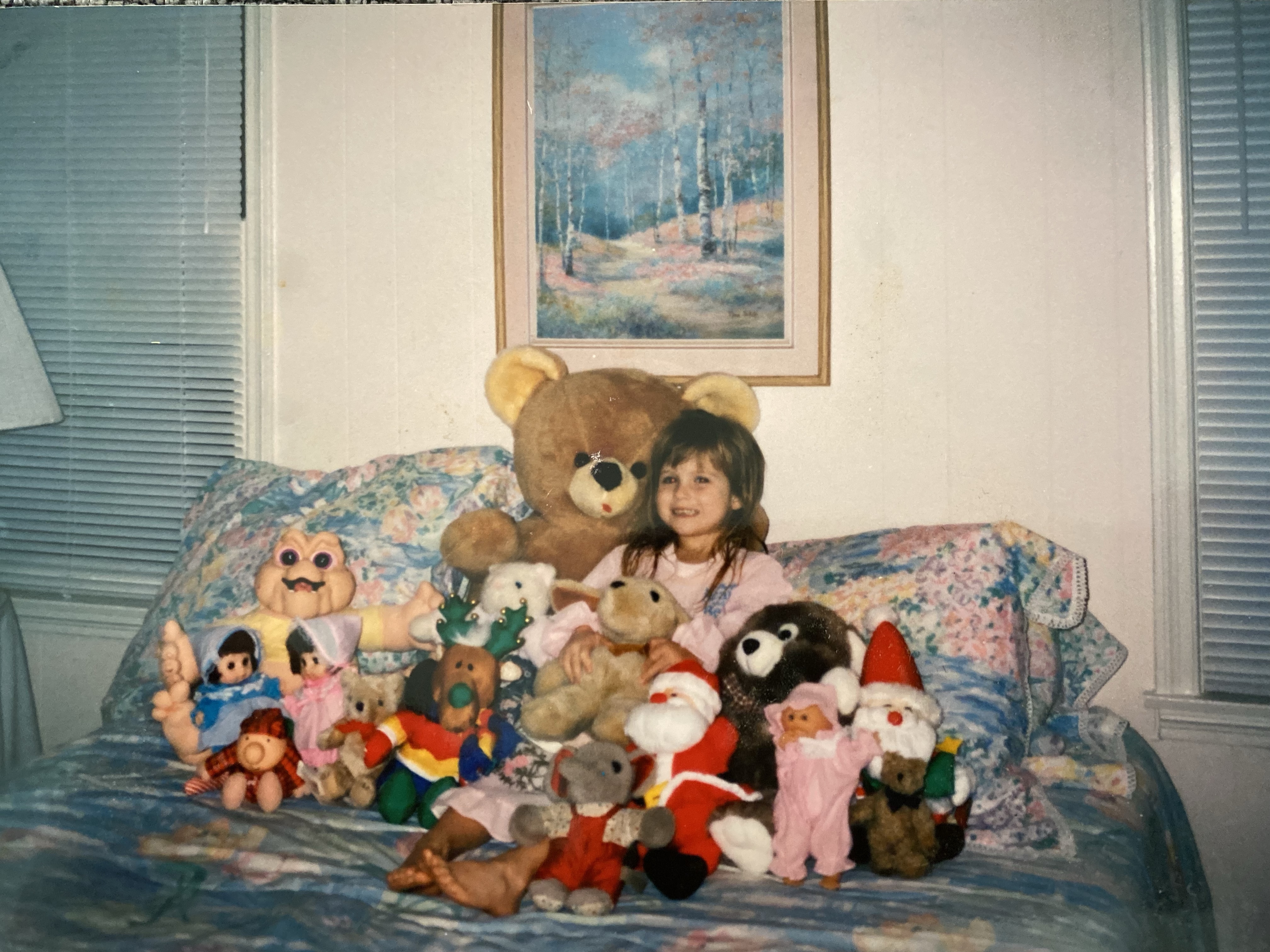
It wasn’t all bad. The mind can’t recollect the physical sensations of pain, no matter how significant. The mind can only recall the suffering that accompanies pain. Because of the privilege of unknowing and the affectionate touch from my mother consoling me, my suffering was not profound. Memories of that time in my life are fond, like the ones described in the previous paragraph.
It is because of these fond memories that I foolishly believed having childhood cancer didn’t affect me greatly. I didn’t think I was a “real” cancer survivor, because I wasn’t aware enough to experience overwhelming fear, impending doom, or the suffering that accompanies those big feelings. Even through my twenties, when it came up in conversation, I would shrug it off: “I didn’t really know what was going on. I think it was harder on my mom than it was on me. I can’t imagine having a sick child.”
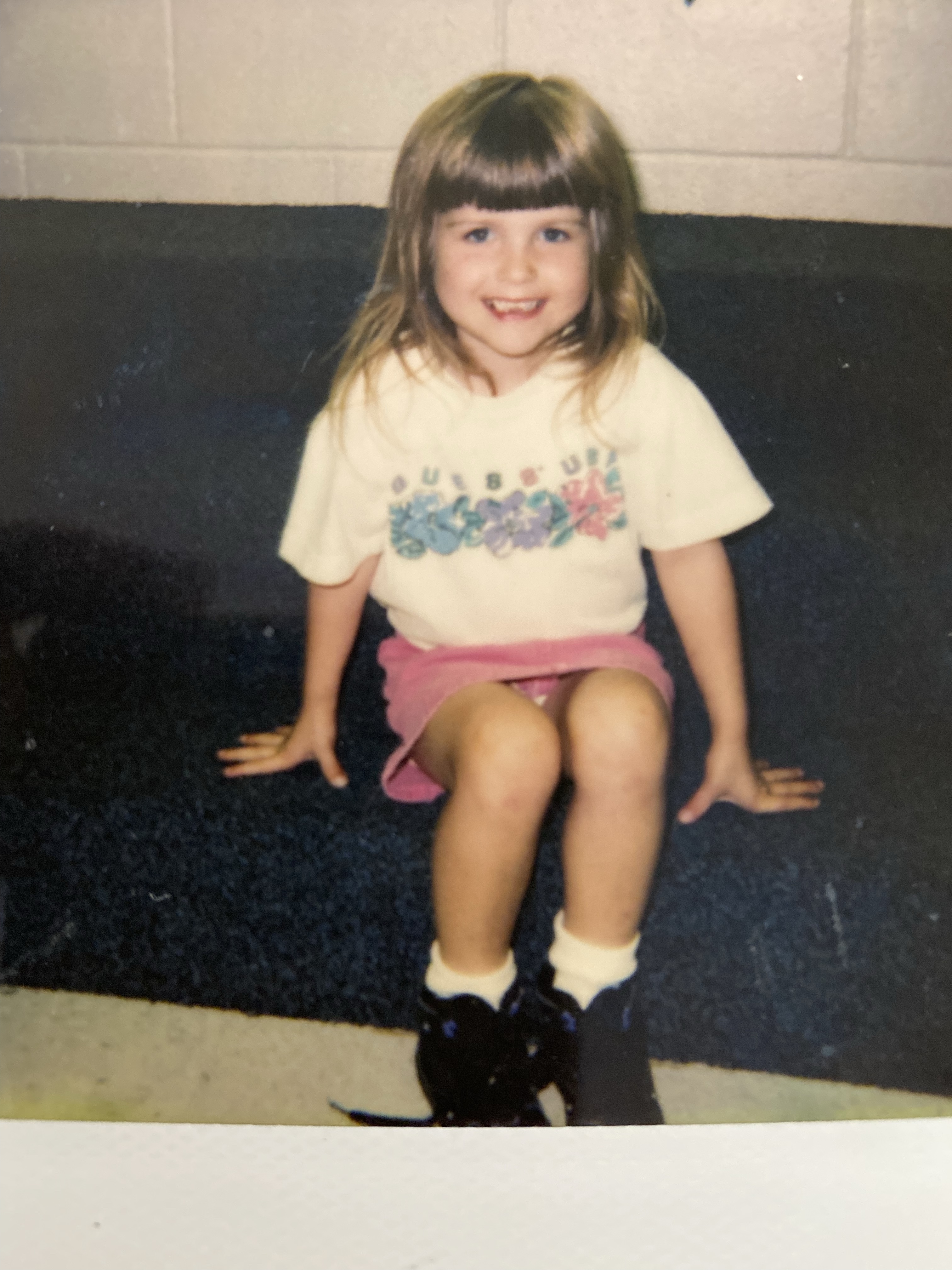
I see now how wrong I was. As I was sick and my mom was worried, I felt responsible for her worry and apparent pain. I realize now that when adults would learn I was sick, I’d see their pitying glances and show them with my larger-than-life—or, larger-than-illness—personality that I was going to be fine. I wasn’t frail or pathetic or someone to be pitied. I’d dance, I’d sing, I’d put on a performance and perhaps people wouldn’t have sadness wash over them when they saw my thin hair, frail body, and when they considered probability of a tragic outcome from my diagnosis.
The significance of chemo memories faded in favor of typical and atypical childhood interests and activities, but I realize now how integrated it became in my personality to show up, do big things, and make sure people around me didn’t feel sad. My go-to response of emphasizing my mother’s emotional pain over my own childhood loss wasn’t a perspective I gained as a young adult with a child of my own—rather, it was how I felt all along. I was carrying the emotional pain of others and constantly trying to be more or do more so that I wouldn’t provoke pity again.
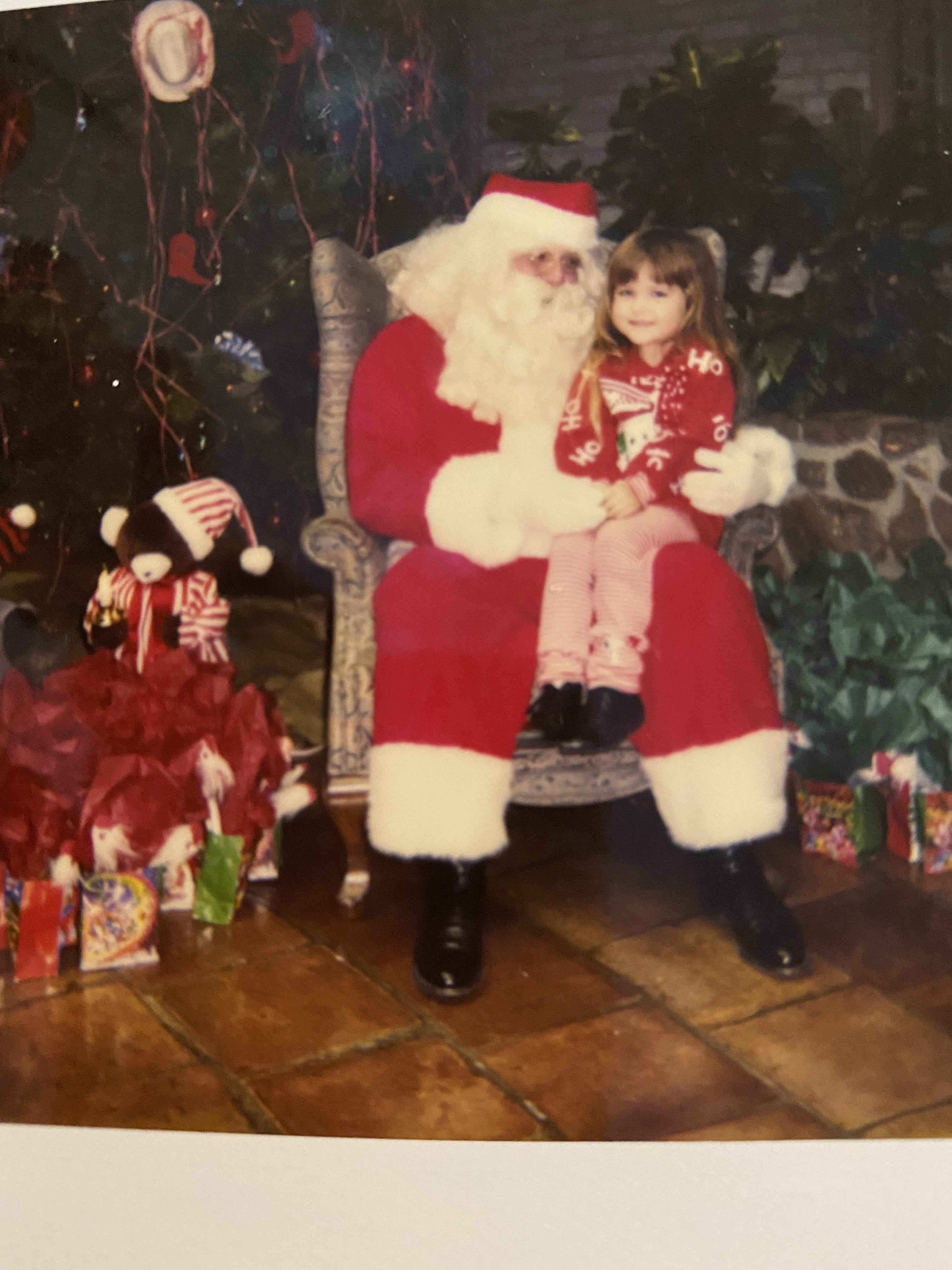
I kept up the performance, I was fearless and reckless, I was unflinchingly positive, I achieved goals. My need to prove myself, to be alive enough, manifested in different ways over the years. Childhood cancer affected me greatly. No one is the same after they receive a cancer diagnosis. No one. What’s different in survivors of childhood cancers, specifically those whose long-term memories were not yet formed, those whose only memories from before and around that time were because of the trauma affiliated, is that there isn’t a “before cancer” self to compare to the “after cancer” self.
I’ll never know how much cancer changed me, because a cancer diagnosis wasn’t a pivotal moment when things changed. Rather, it was a building block: molded and baked into my very being during my most formative years. It’s a part of me, it runs through my veins just as gifts of blood from people I’ll never know once did. As my doctors used all the tools in their arsenal to improve my health and well-being, I was learning to be scrappy, to heal, to fight, and to survive.
This is a beautiful post. Happy that you shared your journey.
Thank you so much for reading! It was so healing to write.
Wow. That’s such an inspiration, and it must be a tough story to recall to write. I admire your strength, and hope that you keep writing and inspiring the world!
Thanks so much for sharing your story! It’s so insightful, and incidentally is a gift to my family in the following way: As a parent of a child with childhood leukemia (who was very lucky and did not have to go through chemo), this is really helping me to have at least a bit of insight into how he might be affected emotionally by his diagnosis & family dynamics around then, and how that may play in to the way he sees himself in the context of the family / how that in turn may affect how he approaches relationships more generally. This has really given me a window I did not have before, and I am grateful to you for it. <3
This was beautiful, Kelsie. Thank you for sharing your journey with us.
Thank you so much for sharing this! My son was diagnosed in august at 2.5 with ALL. Thank you for sharing your perspective as I often worry what he will remember how he will feel and what will be different with his life’s trajectory. This was written perfectly.
[…] that irrational thought pattern, because I didn’t pick it. It chose me as I coped with being a cancer kid and the abandonment of my father while I was undergoing […]
[…] Thankfully I’m not scared of needles at all […]
[…] I was in the early throes of my cancer diagnosis, my father had a middle-of-the-week wedding while I, not invited, sat in a kindergarten classroom. […]
[…] last time I had a new IUD inserted was eleven years ago. You can’t recall physical sensations of pain, only the actions you took as you […]
[…] am a cancer survivor. I’ve known pain. At five years old, I knew the dragged-out discomfort of resting still […]
[…] neglect, sexual abuse, childhood cancer, the struggles that made us who we are are overwhelming as we experience them: we think of nothing […]
[…] My family of origin includes many stories of orphans, including the father who abandoned me when I was five and undergoing chemo. […]
[…] reader and many of my favorite books are other people’s life stories. I have stories to share: childhood cancer, parental abandonment, a years-long physically abusive high school relationship by a boy who was an […]
[…] could go to medical school. I sacrificed one-on-one attention from her in my hospital bed during chemotherapy as a kindergartener so that she could get through college. I sacrificed having a father so that he could abandon his […]
[…] try out without an adult present to facilitate. The children’s hospital I slept in regularly when I had cancer had a playroom on every floor. I’d utilize the washable paints and easel every chance I could […]
[…] Growing up without guidance, I absorbed culture around me. I learned from my black classmates and teachers, I smelled Indian food wafting through the open door of the neighboring apartment day in, day out. I learned rudimentary Spanish, I studied Judaism. I absorbed subculture when I was into punk rock, when my high school was down the street from the “Gayborhood”, when I worked fine dining, bars, luxury retail, marketing. Adopting culture from peers wasn’t appropriation. Culture is what surrounds, what raises you. I was a stray. Rather than learning culture from parents, I picked it up as I went along. Those cultures are just as much a part of me as the many blood transfusions I’ve received. […]